Can dogs eat almonds? The question is not a simple one to answer. There seems to be a great deal of conflicting advice on the internet.
It's always important to research the foods both you and your dog can enjoy, because some may be secretly toxic. While most owners' dogs love peanut butter, they may not know whether peanuts or other nuts are actually safe for pups to eat. Some may wonder if almonds are toxic, while others may worry more about fat content or intestinal obstruction.
Fortunately, most sources agree that almonds are not technically toxic or poisonous for dogs. However, that doesn't mean that almonds — or any nuts for that matter — are safe for dogs to eat.
There are very important differences to note, so read on to find out some of the biggest health hazards of feeding dogs almonds and what you should do if yours accidentally eats a few.
Are Almonds Bad For Dogs?
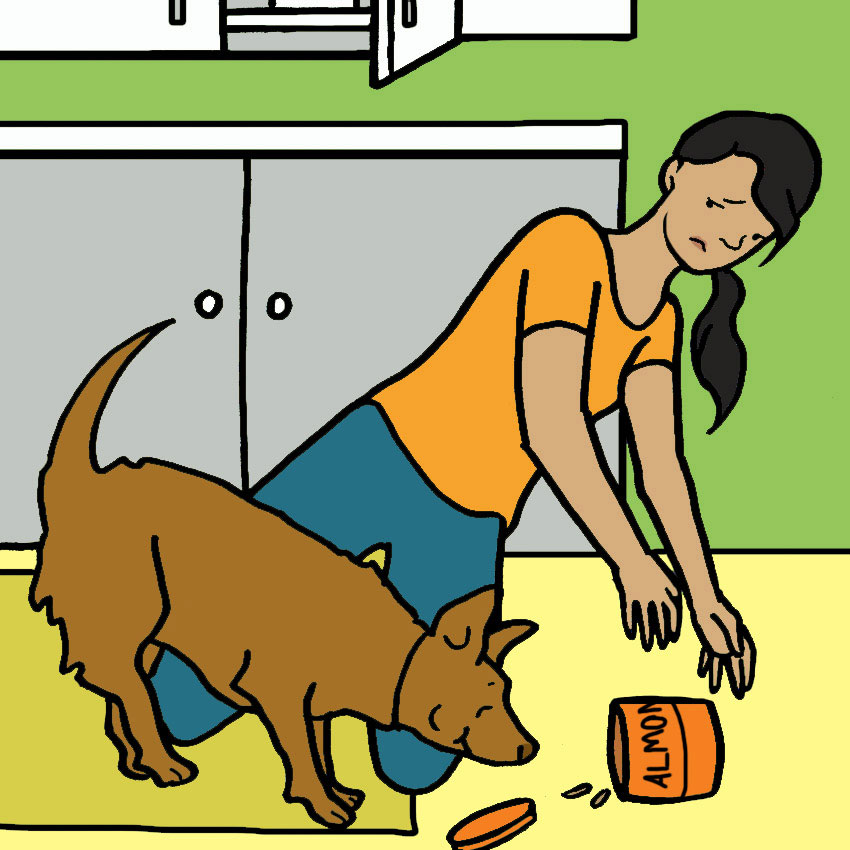
If you walk into the kitchen and discover that your dog got into a bag of almonds, try to relax if he's eaten only a few. However, if it’s more than that, there are a number of facts you need to be aware of — luckily, it doesn’t appear that toxicity is one of them.
What Are The Facts?
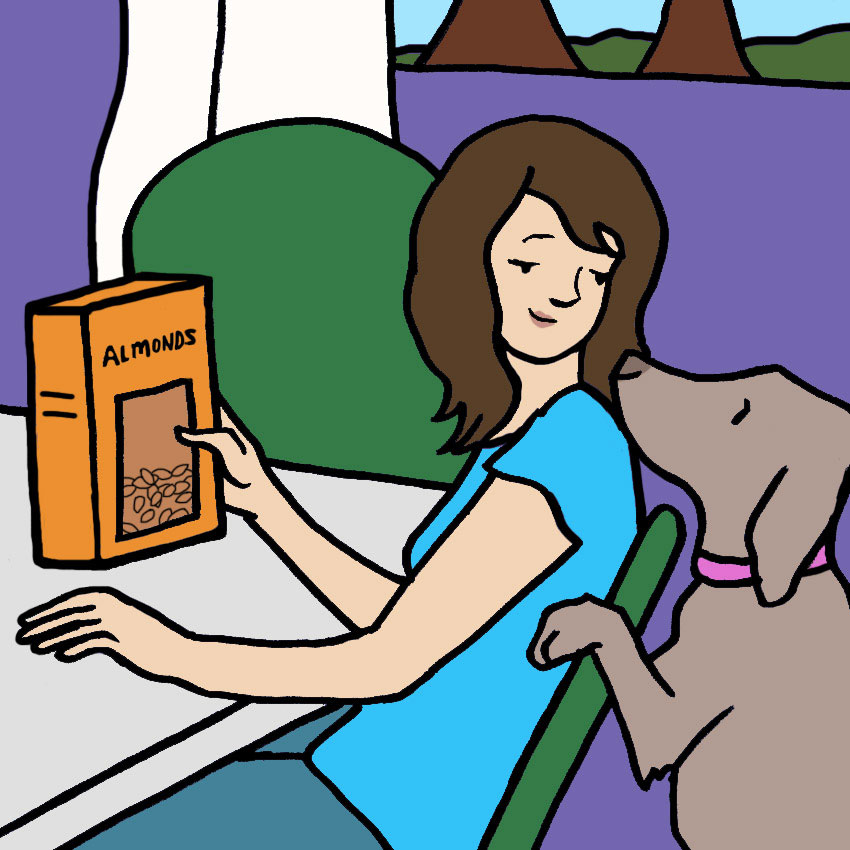
Dogster.com tells us “almonds are not technically toxic for dogs.” And the American Kennel Club agrees, stating, “Almonds, while not as toxic as some nuts, are not safe for dogs.” While it’s great that almonds aren’t toxic, they certainly pose many risks.
Why Are Almonds Bad For Dogs?
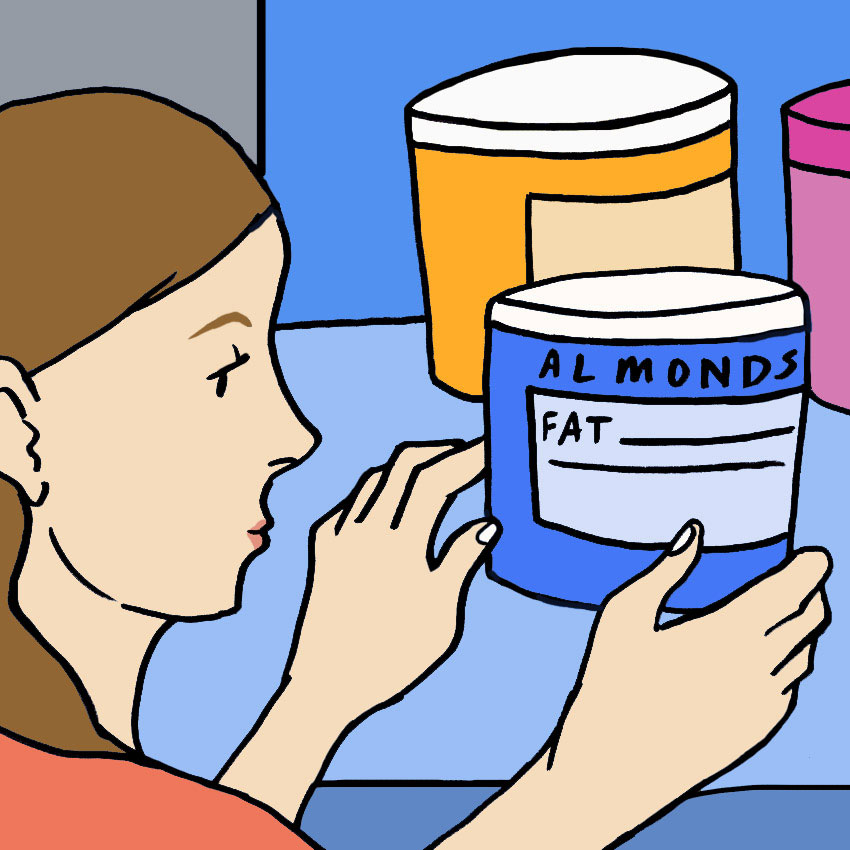
Fat Content — Almonds, like all nuts, are extremely high in fat. Regardless of whether it’s considered a “good” fat or not, feeding your dog excessive amounts of almonds (or any nuts) is not a good idea. Doing so can lead to weight gain and even pancreatitis, a life-threatening condition in dogs.
Salt Toxicity — Most almonds are loaded with salt, especially the flavored or coated types, and this can be harmful to your dog. Remember that dogs get all the sodium they need from their regular dog food, so giving them foods with added sodium can easily lead to salt toxicity. According to the website dog-health-guide.org, “The clinical signs of sodium toxicity are not subtle — restlessness, lethargy, twitching, seizures, coma, and death.”
Risk Of Obstruction — Anyone who’s eaten raw almonds knows how hard they are to break and chew. Because almonds don’t break down easily, and because dogs have a bad habit of skipping the chewing part altogether (especially when they’re sneaking food!), almonds can easily cause an intestinal blockage, especially with small breeds. Symptoms to look out for include forceful vomiting, abdominal bloating and distention, not passing stools, and lethargy and weakness.
Coatings/Flavorings Appeal To Dogs — The AKC makes a great point about flavored almonds that most dog owners may not consider: “Flavored almonds come with their own risks. Most are heavily salted, and dogs may find the smells of the various flavors very appealing, especially flavors like smoked and barbecued.”
Can Dogs Eat Almond Butter?
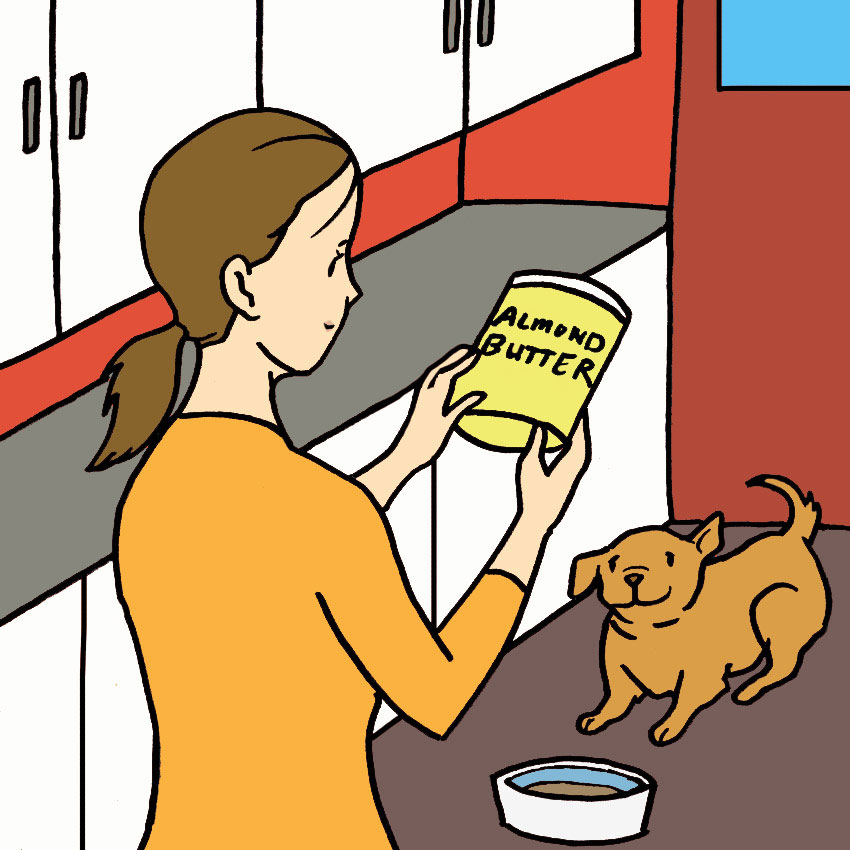
With all the mixed information about the safety of almonds, you may be wondering “can dogs have almond butter?” According to Cuteness, almond butter is a safe substitute for peanut butter, so it’s OK to give to your dog in reasonable amounts. Just be sure to carefully inspect the ingredients before doing so. You’ll want to choose an almond butter that’s free of added salt and sugars, especially xylitol, which is toxic to dogs.
Can Dogs Drink Almond Milk?
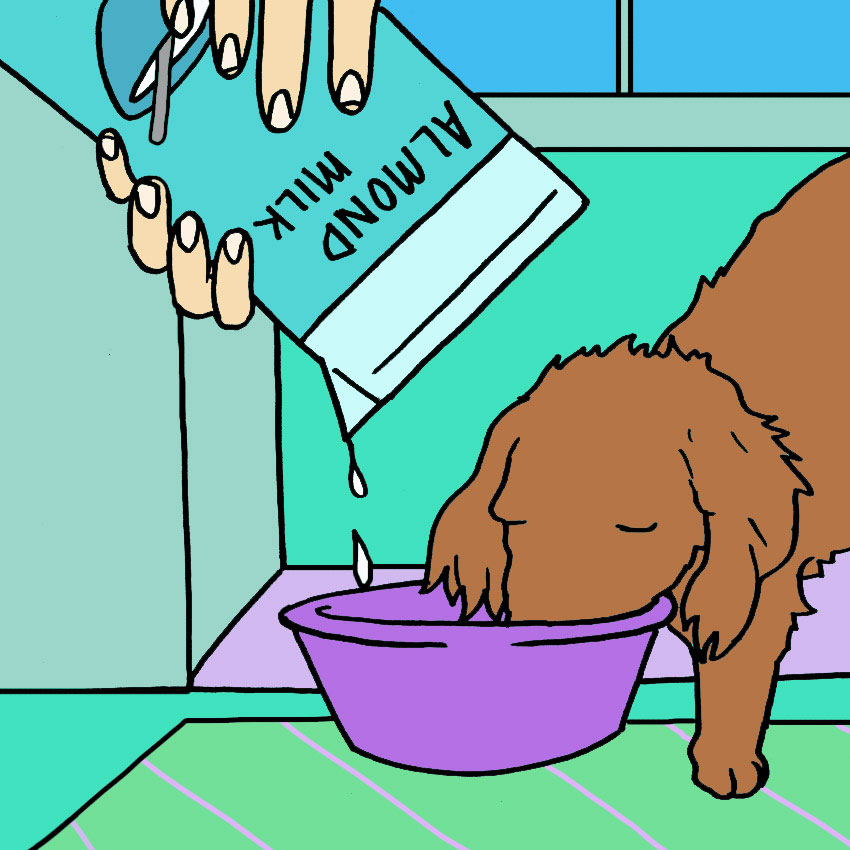
So you’ve decided to skip almonds but you’ve given your dog almond butter with no adverse effects, and he loved it. Why not take it to the next level and try almond milk? The animal hub website states: “Although almond milk is generally safe for consumption by dogs, it is still best to proceed with caution as with any other food. Introduce almond milk into your dog’s diet gradually by feeding it small amounts at a time, this will also help you know if your dog likes it or not.”
The Consensus
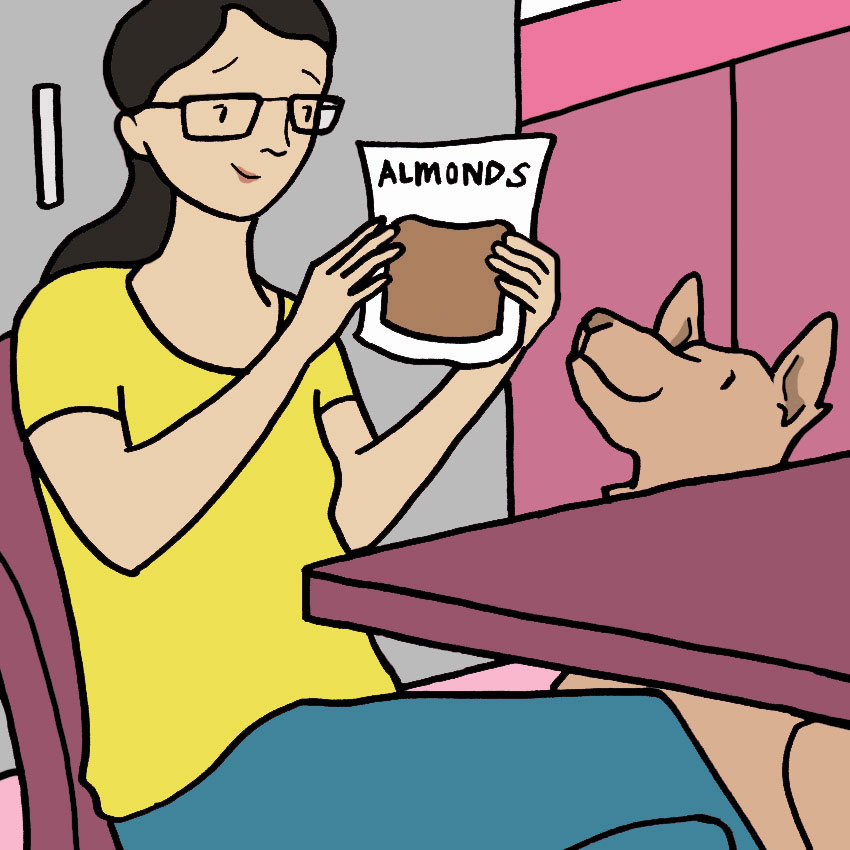
So is almond milk bad for dogs? No, but dogs function completely fine with just water, so there doesn’t seem to be a need to give almond milk to them. If you’re contemplating trying this, consult your vet first and consider your reasons why. Your dog may not get sick, but that’s only half of the story. Almond milk doesn’t provide your dog with anything he really needs, so it’s just as easy to skip it and stick with water.
What’s your take on feeding dogs almonds and related products? Please SHARE this article with everyone who has a furry companion!




